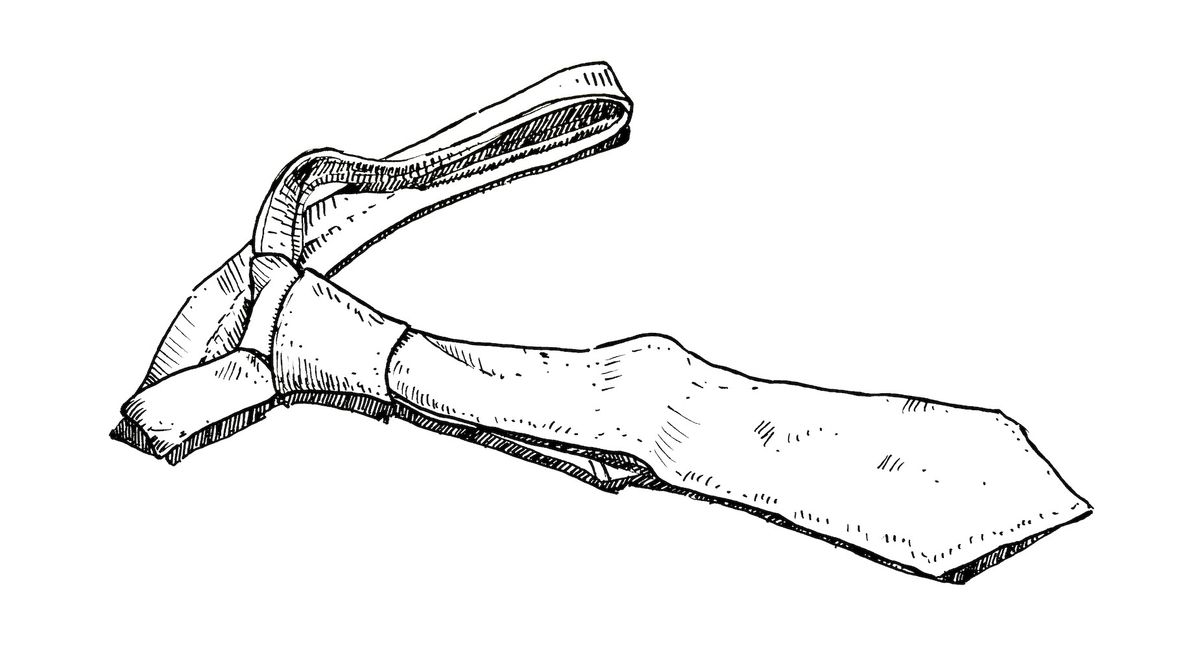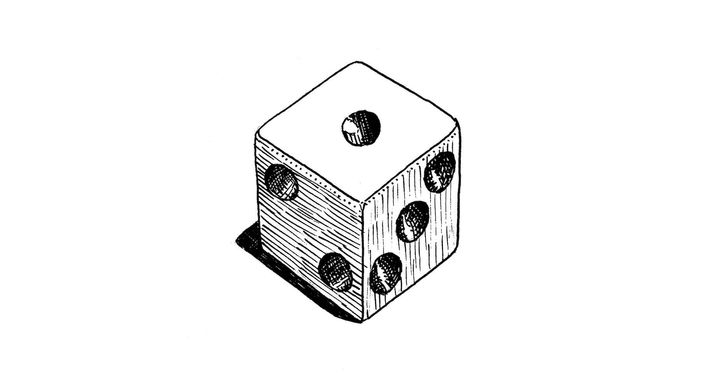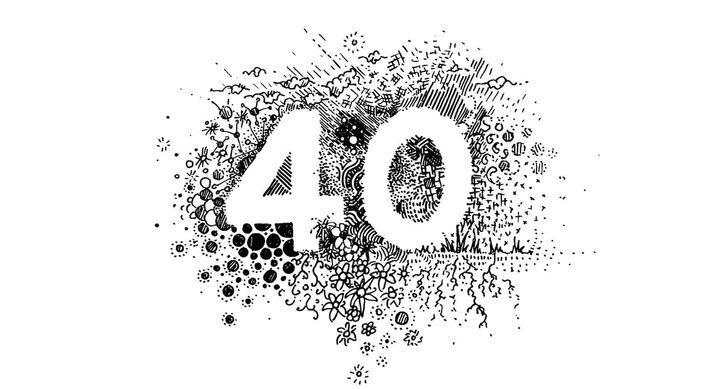Touching base
Stars, lasers and taxi cabs – the glorious (and mixed) metaphors of workplace language

When I lived in Newtown with Cath, Alex and Steph, we had a running joke about the phrase “touching base”. It started with Alex telling us one day that she really couldn’t handle people saying it. From that day on we were always trying to spring it on each other. We’d stroll up, a little closer than typical conversation distance – as if to disclose a secret – stand up very straight, whip back one side of our jacket or shirt to make room to slip a hand into a pocket, lock eyes, then say softly: “We need to touch base.”
The phrase was funny for us because we were so far removed from it. It has roots in baseball, a sport we don’t really play in New Zealand; plus it’s something we imagined exclusive to the professional realm, a place we, dead-poor university students, didn’t belong. It felt like business language nonsense and the joke took a long time to get old.
Since then, I’ve encountered even more classic examples of business language than “touching base”. These are phrases used as catchy shorthand to simplify, steer or categorise work conversations – but which, if you think a bit more about the metaphors, are kinda weird and definitely funny.
Now, a disclaimer: I’m not making a comment on any particular workplace, or criticising anyone who has used these phrases – I’ve caught myself using these. I’m just asking: What are we even saying?
First cab off the rank
“That’ll be first cab off the rank” is what people say when a priority call has been made and that this is the next thing we should take on – often from a long list of other seemingly important things. When I hear this I hope that this first cab is actually the cab at the front of the queue of cabs waiting there, engine idling, drivers getting hot and impatient – but sometimes it’s a cab from the middle of the line, and all the cabs in front of it have to shuffle forward a bit and all the cabs from behind have to shuffle back a bit, and it’s a real faff for this cab to maneuver out of its parallel park, and all this shuffling takes the shine off the esteem of being the first cab. The rest of the drivers have to sit there with their cabs idling because we might need them to drive off instantly at any given moment. And in our haste to launch that first cab into motion, sometimes we forget to establish where the driver is actually going, and who is going to pay the fare.
Let’s take this offline
Nowadays “let’s take this offline” is something you might hear on an online call, which makes “take this offline” sound about right, because you are switching from online to an in-person “offline” later – but I’ve also heard it used when everyone is physically in the room. In this sense “offline” implies some amorphous elsewhere, whether we’re present physically or digitally.
“Let’s take this offline” is typically used by one person in the meeting to suggest another person stops talking about a particular point, perhaps because it’s something that only those two people in the group need to talk about (not everyone), or something that requires more depth than the meeting time will allow. Beneath the surface it can actually mean: “Listen, Janet – this argument isn’t over, but we’re not going to do this in front of all these people. We’ll duke it out later.”
North star
“This will be our north star” is what people say to hold something up as the ultimate goal, one of such clarity that you should always be able to locate and see it, that will show us the way no matter how muddled we might get in the dark. We are encouraged to be as the genius sailors of old, traversing incredible distances using only the stars. Or, in this case, just the one, readily available star.
It’s a well-meaning phrase which can promote positive feelings about a project, no doubt. (Who hasn’t wanted to just throw open the door and follow the stars at some point?) But people can also get fatigued by it, especially if you don’t seem like you’re getting closer to the ultimate goal, only forever seeing it in the extreme distance.
There are further issues. The north star doesn’t sit exactly at the north celestial pole – it’s a bit off to one side. So it’s not quite north. And with star-based navigation, how do you draw a line exactly perpendicular to the point in the horizon it stands for? I mean, without precision instruments. Because we don’t have those. Because we’re not really sailors. We just like the idea of stars showing us the way.
Critically: Surely this is only useful at night? You can’t see stars during the day. And, an even more devastating hit: the north star isn’t even visible in the sky down here in the southern hemisphere. Perhaps we should be aiming for the pot of gold at the end of the rainbow, instead.
A [something] play
Work endeavours can feel like a game of lacrosse, bursting with strategic sideline talks, sprints across the field, and shots on goal. We come off for half time, and the coach thumbs to the exact place in their playbook for this particular scenario, turns to the captain Chadwick Brazenweather, and declares: “What we need is a content play.”
The play ensues and is unsuccessful, so when we come back off the field for another timeout, the assistant coach steps up, grabbing the playbook off the coach, turns to the vice captain Sky Dupree, and declares: “What we need is a digital play.”
I just close my eyes and list the other plays that come to mind: A school play. A role play. A nativity play.
Laser-focused
In the modern workplace, we are attracted to the idea of having the accuracy and focus of a laser. True focus is hard to find. “We need to be laser-focused.”
Computers and the internet were meant to augment our efficiency, make us more connected. Some assumed (and still assume) it might solve the mess of solving dense people problems. But all I see are people harried by lists: lists of Slack messages, lists of emails, lists of document notifications, lists of calendar invites. “Have you checked all your lists in the last ten minutes?!” the computer screams at us. To make headway you’re forced to be a bolshy eschewer of lists. “No! I will not look at that list today! I will not.” There sometimes seems little hope for focus, let alone the kind afforded by a bona fide laser.
No dice
Once a month. That’s about how often the phrase “no dice” gets written down in Slack at my current workplace. I have an alert for the word “dice” set up, because my work name is Dice. People who I work with will say, “Of course you’re Dice, that’s your name.” People I know outside work will wonder, “Who is Dice? You’re Richard.”
It started with too many Richards at work. There were three Richards at Paraparaumu College, and three Richards at Springload. Most of the Richard variants were taken at Springload – there was already a Richard and a Richie – so before I arrived they looked at my surname “Allardice” and decided I would be called “The Dice”. I was actually honoured. I’ve had a lot of nicknames inflicted upon me in the past, and this was the first one that was… nice. This was soon shortened just to “Dice”, which was a relief – having the definite article in front of your name is just too much pressure. (I hope you’re dealing with it okay, The Rock.)
By some alignment of the stars, all three Richards left Paraparaumu College at about the same time, off to pursue different things. The running joke was: “All the Dicks are leaving.”



Comments ()